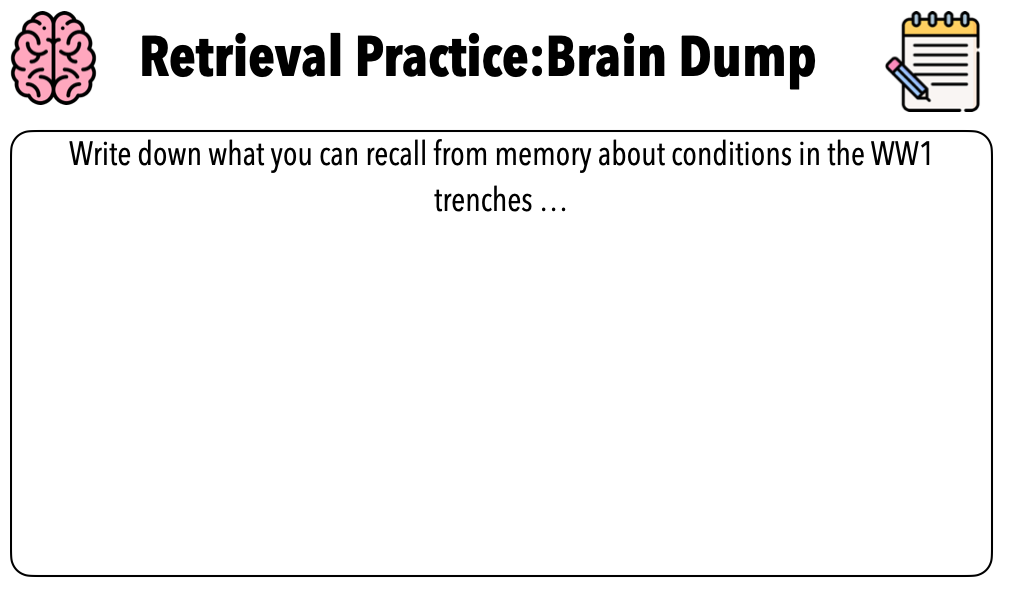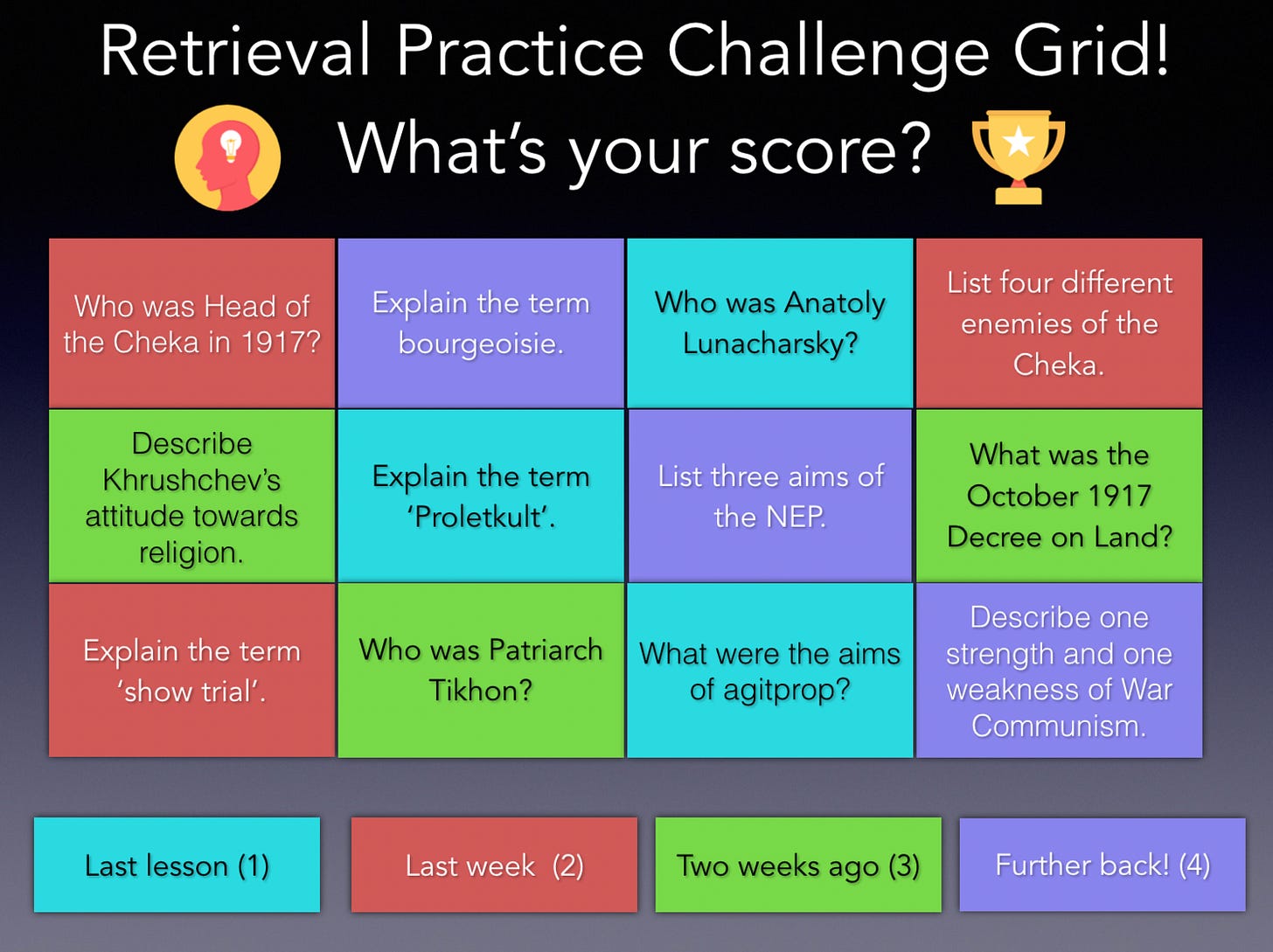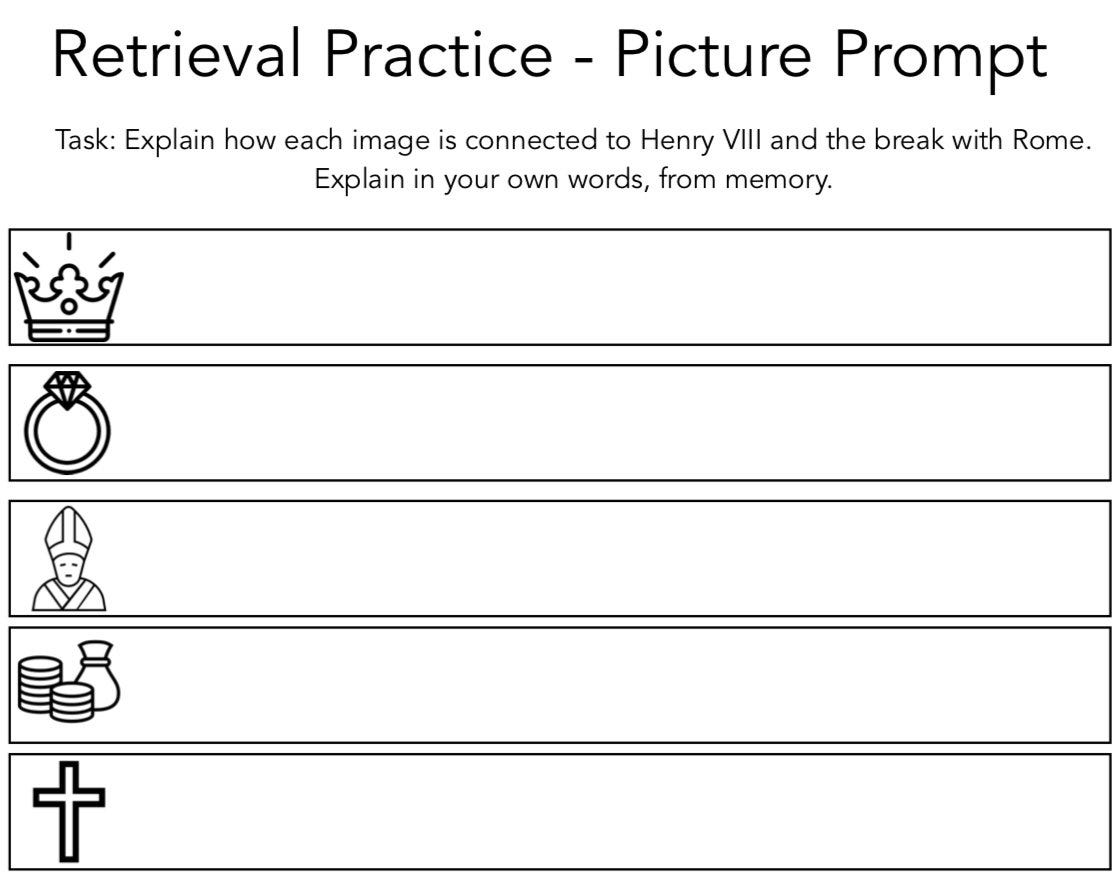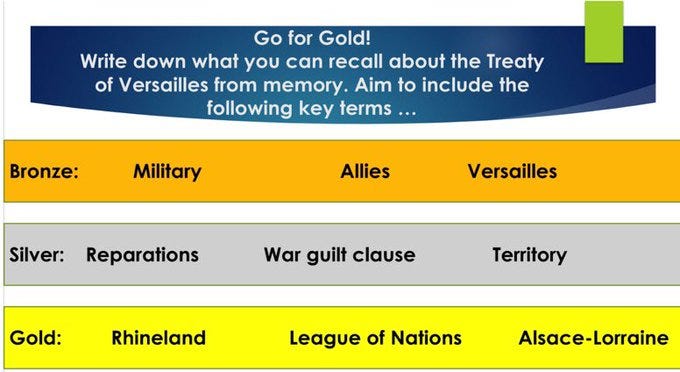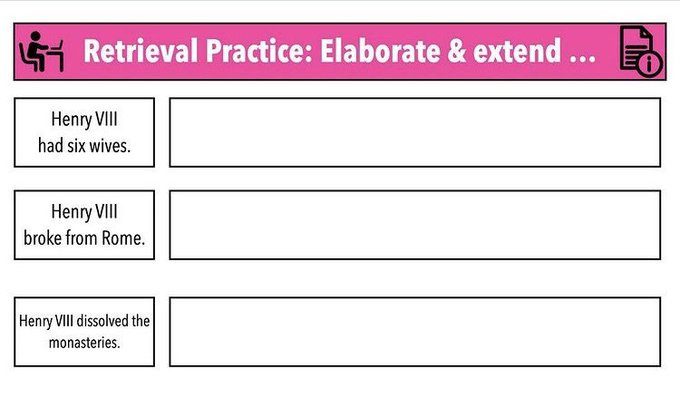Retrieval Practice Ideas For Every Classroom
Reading Time: 4minutes
By: Kate Jones
Retrieval practice has become a widely used strategy in the classroom. Retrieval practice is the act of recalling information, embedded in long term memory, in order to further improve and enhance long term memory. This is an evidence-informed learning strategy, not an assessment strategy. It should be regular, spaced over time and low stakes. There are many ways to do this, both inside and outside of the classroom. Below are five tried and tested retrieval practice ideas for every classroom written by Kate Jones, author of the Retrieval Practice collection with John Catt Publishing.
Brain dump
This is the ultimate low effort, high impact retrieval practice task. Low effort in terms of teacher workload and planning but high impact on student learning. This can be done on paper or digitally, simply a pen and paper will do. Students have to write down as much as they can recall from memory (no notes or textbook to support them) about a specific topic instructed by the teacher. For example; write down everything you can recall about life in the World War Trenches.
This can also be carried out verbally with students talking to their peers, recalling as much information as they can. This requires a lot of effort and it can be challenging but this type of retrieval practice, free recall, is very effective. This strategy does work better with older students as they don’t require as much guidance, support and scaffolding as younger learners.
Retrieval Practice Challenge Grid
Retrieval practice should become a regular part of any classroom routine. It should also be spaced out, so instead of just focusing on asking students to remember information from the last lesson we need to challenge them to think further back! The retrieval practice challenge grid should include a range of questions and each question will be worth a different amount of points, depending on how far back the content was taught. One point awarded for answering a question correctly based on the last lesson but four points for answering a question correctly based on further back. Retrieval practice should be low stakes, meaning no pressure or stress, as it is a learning strategy rather than an assessment strategy. This task is low stakes but to make it no stakes the points system can be removed.
Picture Prompt
Evidence and experience shows us that younger students can find free recall (such as the brain dump above) very challenging. The lack of support can result in answers being vague and lacking relevant detail. To support younger students with retrieval practice cued recall is a good strategy. The picture or icon will act as a cue and a prompt, guiding students so that they have a clearer understanding of the information they need to recall. This retrieval success can also be a great boost of confidence and motivation.
Go For Gold
This is a cued recall task similar to the picture prompt, the key difference is that the images and icons are replaced with key terms. In addition to providing support to students with their recall it also encourages students to include subject specific vocabulary in their answers. Key terms in the ‘Bronze’ section should be accessible for all. Key terms in the’ ‘Silver’ and ‘Gold’ should be very challenging. This activity strikes a good balance between retrieval success and retrieval challenge. Support for all, challenge for all.
Elaborate and extend
It can be very frustrating when students write basic and simplistic responses. We know that they are often capable of including a lot more detail and explanation in their written answers. Instead of providing repeated feedback asking students to expand and elaborate this can be set as a retrieval task. A sentence is provided, again acting as a cue and guidance as to what information needs to be recalled. Students then need to develop that sentence further, extending and elaborating with detailed explanation.
Kate Jones is Head of History at The British School Al Khubairat, Abu Dhabi. Kate is also the author of Love To Teach and the Retrieval Practice collection with John Catt Publishing. Kate tweets @Katejones_teach and is on Instagram at @Katejones_teach.



